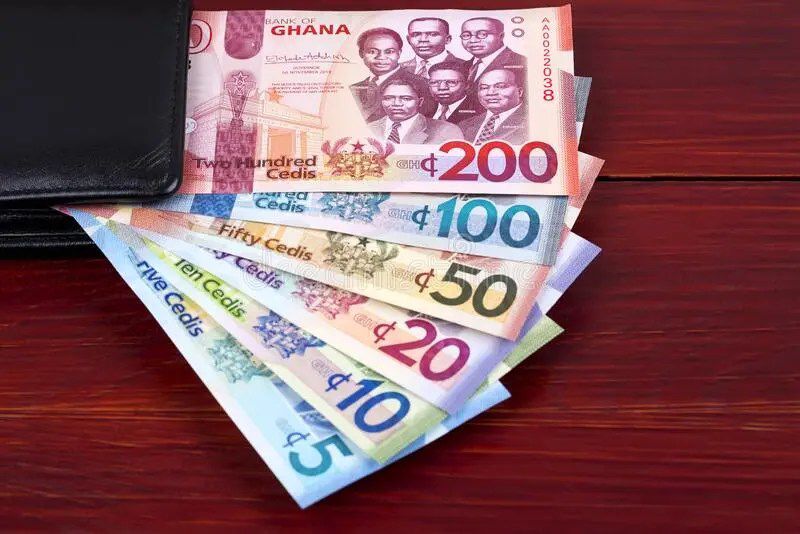The Ghanaian cedi experienced a slight depreciation against the United States dollar on Thursday, February 6, 2025, according to data from Cedirates.com, a reliable source for currency and fuel information in Ghana. The buying rate for the dollar stood at GHS15.26, while the selling rate reached GHS15.74, reflecting a 1 pesewa decrease in both rates compared to the previous day’s average. This minor fluctuation indicates a relatively stable exchange rate environment, though still favoring the dollar. Forex bureaus, which provide currency exchange services to the public, offered slightly different rates. Individuals looking to exchange dollars for cedis could obtain a rate of GHS15.50, while those converting cedis to dollars faced a rate of GHS15.90. This difference between the interbank and forex bureau rates is typical, reflecting the varied operating costs and profit margins of different financial institutions.
The interbank market, where banks trade currencies among themselves, showcased a tighter spread between buying and selling rates for the dollar. The buying rate was GHS15.44, and the selling rate was GHS15.46. This smaller difference is characteristic of the interbank market, where large volumes of currency are traded, leading to more competitive pricing. The data highlights the nuanced landscape of currency exchange in Ghana, with slightly varying rates available depending on the platform or institution used. Monitoring these rates is crucial for businesses and individuals involved in international transactions.
Beyond the US dollar, the Ghanaian cedi also experienced fluctuations against other major currencies, including the British Pound and the Euro. The average exchange rate for the British Pound was GHS18.51 when converting pounds to cedis and GHS19.63 when converting cedis to pounds. Similarly, the Euro traded at an average of GHS15.75 for those exchanging euros for cedis and GHS16.41 for those exchanging cedis for euros. These rates indicate the relative strength of the pound and euro compared to the cedi in the broader foreign exchange market. The Bank of Ghana’s interbank market offered slightly different rates for these currencies, with the pound selling at GHS19.35 and the euro trading at GHS16.10. These variations reflect the dynamic nature of currency markets and the influence of various factors, including supply and demand, economic conditions, and market sentiment.
For individuals seeking to transfer money to Ghana from abroad, specialized money transfer services like LemFi and Afriex offer competitive exchange rates. LemFi provided a rate of GHS15.30 per dollar for transfers from the US or the UK, while Afriex offered a slightly higher rate of GHS15.39. For British Pound transfers, LemFi’s rate stood at GHS19.00, and Afriex offered GHS19.10. Euro transfers through Afriex were priced at GHS16.03, while LemFi offered a slightly lower rate of GHS15.85 per euro. These services often provide more favorable rates than traditional banks, catering to the needs of the remittance market and offering a cost-effective way to send money across borders.
Those making digital subscription payments for services like Netflix, Spotify, or Apple Music using Visa and Mastercard faced a different exchange rate of GHS16.48 per dollar. This rate is typically set by the payment processors and may differ from the prevailing market rates. The variation in rates underscores the importance of understanding the specific exchange rate applied to different types of transactions.
Experts attribute the fluctuations in the British Pound and Euro against the Ghanaian cedi, particularly within Ghanaian banks, to a combination of global economic factors. One significant influence is attributed to the economic policies implemented during the presidency of Donald Trump in the United States. Specifically, the imposition of increased tariffs on goods from countries like Canada, Mexico, and China contributed to a strengthening of the US dollar relative to other currencies. These protectionist trade measures created shifts in global trade dynamics, affecting currency valuations and impacting exchange rates in countries like Ghana. The interplay of these global factors creates a complex and ever-shifting exchange rate environment, requiring constant monitoring and analysis to understand the forces driving currency movements.


